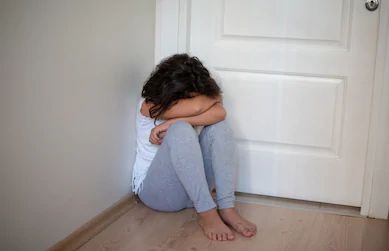
‘Stay Home…stay home’
‘There is no place like home’ is a statement we say or hear all the time. Wherever we go, however much we enjoy where we go, we always yearn to be back home.
Indeed, home may just be a mud house without essential services such as pipe borne water, good toilet facilities and electricity. It may even be the corner of a street in a city or community where a hawker, a kayayoo or any deprived person for that matter, lives or goes to rest after a hard day’s work.
Food may be scarce and the resources to ensure that all members of the home are fed may be problematic. Indeed, several households in Ghana may never have the mandatory three square meals a day.
Often, it may be just one meal, lacking in essential nutrients or ingredients. When it comes to sleeping arrangements within the home, more often than not, it may just be a one room space with children sleeping on simple thin mats spread on the floor, along with their parents or guardians who may be the lucky occupants of a lone bed.
But whatever and wherever we refer to as ‘home’ it is the place we feel most comfortable at, even though this may not always be so, due to the different gendered experiences therein.
Aspect
An aspect of the home is the primary role and responsibility of women and girls within it. Ghanaian women produce and provide food both for use in households and in the wider economy. Due to how our society has been shaped by our history and changing economic circumstances, women’s contributions in homes have not been sufficiently acknowledged and valued.
Women scholars have debated the role and status of women from the pre-colonial, colonial and post-colonial societies and explored how women have dealt with changing forms of discrimination and oppression.
They have also examined how issues of the ‘home’ or the ‘domestic’ is gendered, and how that in itself has been used in different historical circumstances, such as, national struggles for independence and nation building to mobilise citizens around different power systems.
Important actors
In all this, women have been shown to be essential historical, economic and social actors in practically every region of Africa for centuries.
Indeed, scholarly papers and articles by women all over the world and Ghana as well, have contributed significantly to providing a corrective about how intricately linked women’s contributions in the home and the wider economy are.
But who listens to this very essential contribution of women on the way our societies are structured and by implication, its relevance for policy and action?
When has the ‘home’ ever been a central place for economic recognition and validation? When governments and policy makers think of the economy, they have tended to think of what is visible and paid for, in terms of productive activity and services.
So in spite of the many scholarly works on the gendered nature of the household, it remains individualised, hidden, not valued or accounted for in national economies.
In spite of the primary importance of the home and its relevance in terms of its character and form, and in the definition of what constitutes basic livelihood and well-being, homes are never truly constructed as part of a whole economy.
The household or home has been mainly constructed as a space for unpaid care-giving by women and girls.
Good news
The good news is that the call to ‘Stay home’, in this era of the Coronavirus, is actually affirming for all of us the primacy and relevance of the home and the need for us to pay attention, celebrate and also address its many challenges. It is actually a victory for women in terms of what they have been saying all the time: ‘Pay attention to the home’.
The question is whether there will be a shift towards valuing the home in all policy making and at all levels in this era of the Coronavirus – and beyond? Will all of us in our different relationships and connections with the household, become more grounded in valuing our homes/households? How will it look like, regarding our conception and relationship with the ‘home’ as a result of our experience at this time of ‘staying home’ due to the Coronavirus?’
It remains to be seen what will happen in the post COVID-19 context. However, if history is anything to go by, what might happen at best is not a total shift but the creation of new and the redefinition of old, forms of gender relations in looking at the household/home.
The writer is the Executive Director, ABANTU for Development.
